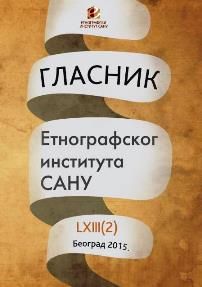The Significance of Serbia’s Recent War-Ridden Past for Young People’s Identity Perceptions
The Significance of Serbia’s Recent War-Ridden Past for Young People’s Identity Perceptions
Author(s): Jelena SpasenićSubject(s): Culture and social structure
Published by: Етнографски институт САНУ
Keywords: identity; young people; Serbia; Milošević regime; confrontation with the past
Summary/Abstract: How do we ethnographically chart the ways in which a recent war-ridden past features in everyday identifications of young adults, who have little or no direct experience of that past? One way is to treat this question as a matter of how everyday knowledge is constituted and transferred between individuals, as well as how historical legacies, cultural and political models enter their life-worlds, what they think and know, and who they are. These inquiries stood at the core of the study I conducted among two high-school classes between 2007 and 2009 in Novi Sad. This article will shed light on my main conclusions and problematize the notion of collective confrontation with the past. My contention is that arguments for collective confrontation with the past, together with official policies informed by this discourse, need to take into account social psychological mechanisms of identity construction in order to avoid the assumption that knowledge and moral insight can be mapped onto people’s minds.
Journal: Гласник Етнографског института САНУ
- Issue Year: LXIII/2015
- Issue No: 2
- Page Range: 317-336
- Page Count: 20
- Language: Serbian

